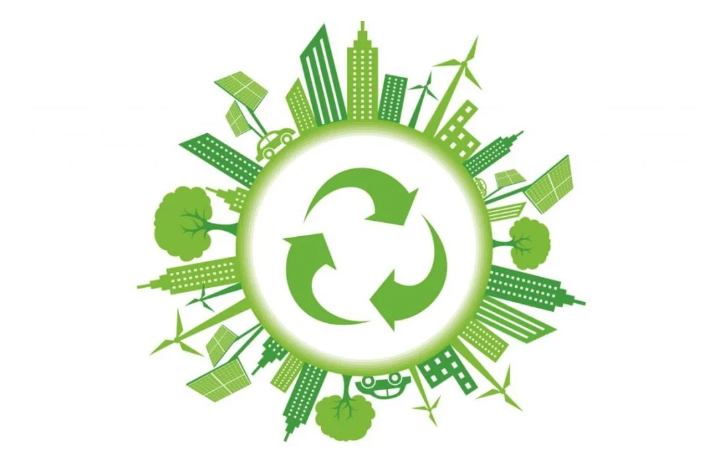How does sustainability reign supreme, driving innovation and reshaping consumer expectations?
Sustainability has become a top priority for consumers and some brands alike. With mounting concerns about environmental degradation and resource depletion, the concept of circularity has emerged as a powerful solution to address these challenges. By adopting circular practices, companies can minimize waste, reduce carbon emissions, and create products that are designed to last and be reused or recycled.
One of the driving forces behind the push for circularity is the European Union, which has announced ambitious plans to transition to a more circular economy. Under these plans, certain products will be required to adhere to circularity standards, including documentation that tracks the product's lifecycle from production to disposal. This shift towards circularity represents a significant opportunity for both consumers and brands, paving the way for more sustainable consumption patterns and business models.
For consumers, the benefits of embracing circularity are manifold. By opting for products designed for longevity and recyclability, individuals can significantly reduce their environmental impact and play a vital role in fostering a more sustainable future. Circular products not only minimize waste but also offer superior quality and durability, providing consumers with enduring value for their investment over time.
Certain producers have already set high standards for their products, epitomizing the ethos of durability and longevity as part of their brand identity. This commitment to quality ensures that products not only withstand the test of time but also remain functional and reliable for years to come. As the German saying goes, "wer billig kauft, kauft zweimal" (meaning "if you buy cheap, you buy twice"), emphasizing the importance of investing in high-quality, long-lasting items rather than opting for cheaper alternatives that may require frequent replacement.
In industries such as automotive and machinery, renowned German companies like Miele have earned international acclaim for their unwavering commitment to producing top-tier, long-lasting products. While some industries may compromise on quality to stay competitive and reduce costs, these companies uphold the value of craftsmanship and durability, preserving their brand integrity and customer trust.
However, in certain sectors, the pursuit of cost-cutting measures has resulted in a decline in quality standards, leading to a loss of branding and consumer confidence. This phenomenon is particularly evident in the automotive industry, where some manufacturers have sacrificed quality in favor of short-term gains, eroding their brand reputation in the process.
In essence, embracing circularity not only benefits consumers by offering durable, long-lasting products but also preserves brand integrity and fosters consumer trust. By prioritizing quality over quantity, companies can uphold their commitment to sustainability while delivering exceptional value to consumers, ensuring a brighter, more resilient future for all.
For brands, embracing circularity offers a host of benefits as well. By adopting sustainable practices throughout the product lifecycle, brands can enhance their reputation, attract environmentally-conscious consumers, and drive innovation. Moreover, circularity can lead to cost savings through reduced material usage, waste, and disposal costs, ultimately improving the bottom line.
Revelbloom's one-platform solution plays a crucial role in facilitating circularity and quality by connecting existing systems that establish circularity protocols and documentation. By integrating with supply chain management systems, DPP systems, and consumers, Revelbloom enables brands to track and trace the lifecycle of their products with ease. Moreover, Revelbloom ensures EU compliance by providing comprehensive documentation and certification of circularity practices, helping brands navigate regulatory requirements and demonstrate their commitment to sustainability.
In conclusion, the transition to a circular economy represents a shift in how products are produced, consumed, reused, and disposed of. By embracing circularity, consumers and brands can reap the rewards of a more sustainable future, where waste is minimized, resources are conserved, and products are designed to last. With Revelbloom's one-platform solution, brands can unlock the full potential of circularity and lead the way towards a brighter, more sustainable tomorrow.
Ready to embrace circularity and unlock the benefits of sustainability for your brand? Contact Revelbloom today to learn how our one-platform solution can help you establish circularity protocols, ensure EU compliance, and drive innovation in your industry. Let's work together to build a more sustainable future for generations to come.
Copyright © 2024 Revelbloom

